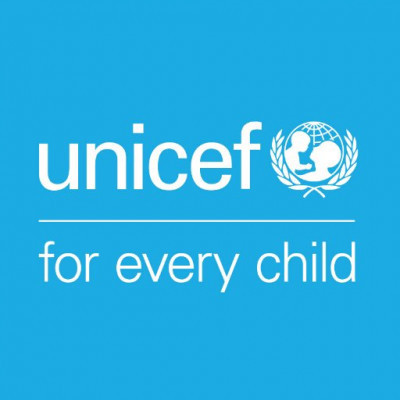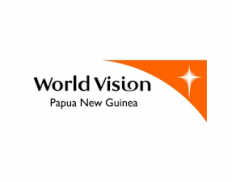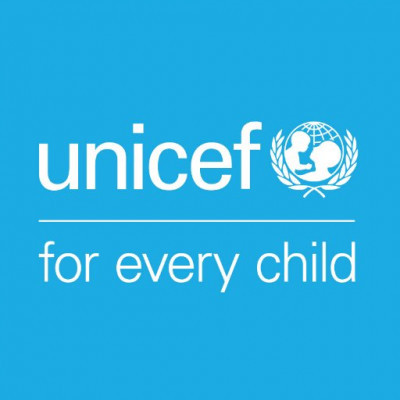Details
Description
Background
1.Project Background
Papua New Guinea (PNG) is one of the pilot countries that was selected to participate in the Pilot Programme for Climate Resilience (PPCR). The PPCR is part of the Strategic Climate Fund (SCF), a multi-donor Trust Fund within the Climate Investment Funds (CIF), and provides financing through the multilateral development banks to support programmes in the selected pilot countries. The goal of the PPCR is to help countries transform to a climate resilient development path, consistent with national poverty reduction and sustainable development goals.
With technical support provided by the ADB (financed under the first phase of PPCR), the PNG’s Strategic Program for Climate Resilience (SPCR) was designed and developed through a broad-based consultative process. The SPCR seeks to achieve transformational change by supporting implementation of PNG national strategies to make PNG‘s development investments climate resilient or to facilitate “climate compatible development” on PNG ‘s own terms.
The overall outcome of the SPCR is the enhancement of PNG‘s resilience to climate change through improved access to resources, knowledge, and tools and climate resilient infrastructure at the national, sector, district, and community levels. These are the prerequisites for effective social development, food security, and overall poverty reduction. In PNG, the SPCR will support achievement of these key pillars for climate resilient development.
In seeking this transformation, the SPCR will address key impediments facing PNG‘s current efforts to implement its national strategies. These include:
inadequate resources (human, technical, financial) at national, provincial, district, community, and sector levels to mainstream climate change risk management;
inadequate knowledge and tools for mainstreaming climate change risk management in key sectors (food security, health, critical infrastructure) and in the national/provincial/district budget processes; and
poorly designed infrastructure that is susceptible to climate change impacts.
The Government of PNG obtained a SCF-PPCR grant from the Asian Development Bank to implement the “Building Resilience to Climate Change” (BRCC – the project). The project will help the PNG implement the SPCR by mainstreaming climate resilience into development planning and addressing country priorities that focus on vulnerable communities.
2. Duties and Responsibilities
This role is with the UNDP Team and works closely with the BRCC PMU at CCDA and at the regional leave with the Regional Climate Change Committee and the Autonmous Bougainville Government including other key Government stakeholders and UN Agencies on a daily basis to ensure project activities are implemented in a more consultative and coordinated manner.
3. Scope of Work
In fulfilling the above objectives, the Provincial Coordinator must cover following scope of work:
Lead and support in the Inception Workshop at the Regional level to ensure the Regional Stakeholders are aware of the project in the region including its target communities
Lead and Support Provincial and Community Consultations on the implementation of the BRCC project
Establish networks at the regional, district and the community level for the ease of project implementation
Lead in preparation for regional and community level workshops, trainings, meetings, consultations and visits
Develop regional level work plans including community level visits and actions in alignment with the overall Project Annual Work Plan
Develop and share project progress reports with the Project Management Team at UNDP
Closely monitor the progress of activities against the Approved Annual Work Plan at the provincial and regional level
Document issues and risks that has potential impact on the project implementation and share with UNDP Project Team and PMU at CCDA for the options for solutions and decisions; Lead and support in the research and publication of necessary reports and documents relating to the project
Provide necessary technical support and strengthen the Provincial Climate Change Committees (PCCCs) established in the Provinces as a mechanism to coordinate Provincial level climate change interventions
Create better relationship and linkage with the regional disaster risk reduction/management agencies including regional Disaster Directorate;
Facilitate exchange and learning sessions at the regional level
Provide support in communications and visibility of the project in communication and consultation with the provincial counterparts and UNDP Project Team
Monitor and report on the progress of the project management and implementation in line with the Project’s Resources and Results Framework (RRF), the UNDP Country Programme Document (CPD) and the United Nations Development Assistance Framework (UNDAF).
Duties and Responsibilities
4. Reporting of Duties:
The Provincial Coordinator will work under the supervision of Project Manager in consultation with the Chief Technical Advisor (CTA) who is the Team Leader and the Deputy Team Leader of the Project.
5. Key Deliverables and Schedule of Payment
Reporting period and key milestones
Due Date
Payment Percentage
Review and Approvals
Payment upon submission and acceptance of
1 SGF training completion report on SGF applications and investment plans for Milne Bay sites
1 workshop completion report in formulating, facilitating and mainstreaming climate change adaptation plans into the LLG, district and provincial development plans
Milne Bay PAC meeting minutes on Submission and acceptance of 40 SGF applications
1 training completion report on Disaster Management Committees established and training for target LLGs in Milne Bay
31 August 2023
20%
BRCC Team Leader
Payment upon submission and acceptance of
1 training completion report on emergency response training (drills and simulation training) at 3 target sites in Milne Bay
1 resource assessment report of fisheries ecosystems and food security for target sites in Milne Bay
Completion training report on reef and coastal management and other food security
Completion report 3 home gardens demonstrated (as adaptation measures against climate change) in identified target communities
Completion report on 3 mangrove forest rehabilitation demonstrated.
31 January 2023
30%
BRCC Team Leader
Payment upon submission and acceptance of
Completion report on 3 watershed rehabilitation demonstrated in communities adjoining target vulnerable islands.
Completion report of 9 food processing and preservation initiatives piloted in nine island communities (with 50% women participation).
3 LMMAs established, registration of LMMAs and LMMA management plans.
31 March 2023
40%
BRCC Team Leader
Payment upon submission and acceptance of
Completion report for all approved subprojects for target sites in Milne Bay
Final sustainability report detailing long-term plan to sustain progress and maintain infrastructure for targets sites in Milne Bay.
25 April 2023
10%
BRCC Team Leader
6. Institutional Arrangement
Maximum working days over the 10-month period would be 79 days for various intermittent assignments. However, UNDP does not warrant that any quantity of services will be purchased during the term of the Framework Agreement as this will depend on forthcoming needs;
IC as a Framework agreement is non-exclusive (i.e. it does not prohibit UNDP from entering into another such framework agreement with other individuals or entities).
The Framework Agreement will be for a fixed all-inclusive daily fee;
Once the Framework Agreement is signed, if there is a specific assignment, the focal person(s) at UNDP would contact, by email, the Consultant informing them of specific deliverables and timeline;
Thereafter a Purchase Order (PO) will be raised. Financial commitments will only be established each time the services are requested within the scope of the Framework Agreement through the transmitted email and purchase order;
The Consultant will be given access to relevant information necessary for the execution of the tasks under this assignment;
Payments will be made upon submission of a detailed timesheet and certification of payment (COP) form and acceptance and confirmation by the supervisor on days worked and outputs delivered.
7. Duration of the Work
The total duration of work is 79 days over the ten months.
For this agreement, 79 days is defined as 10 months from signing the contract. It does not particularly mean calendar months.
8. Duty Station
The duty station will be Alotau, Milne Bay.
The IC will be required to report on a requirement based on the contract administrator or be present at a schedule agreed earlier, including reporting frequency.
Competencies
Competencies
High level of computer literacy is essential (in particular word processing, publishing and presentation software). Knowledge of environment, climate change and disaster risk reduction are an asset;
Exceptional communication, presentation, inter-personal and networking skills;
Be task oriented and able to work independently;
Demonstrate high level of gender sensitivity and advocate for gender equality;
Be able to work effectively in a high pressure, occasionally stressful environment;
Ability to quickly establish and maintain effective working relations with people of different cultural backgrounds;
Proven communication and report writing skills;
Ability to negotiate and reach understanding or agreement in a most challenging environment;
Able to work in challenging and stressful conditions;
Possess commitment to teamwork;
Demonstrate openness to change and ability to manage complexities;
Respond positively to critical feedback and differing points of view;
Fluent written and spoken English.
Required Skills and Experience
9. Qualifications and Experiences
Education
At least Master’s degree in Climate Change, Disaster Risk Reduction and Emergency Management, Environmental Science, Geography, Information Management, Statistics, Social Sciences, or a related area.
At least Bachelor’s degree 7 years experience (in lieu of a Masters degree) in Climate Change, Disaster Risk Reduction and Emergency Management, Environmental Science, Geography, Information Management, Statistics, Social Sciences, or a related area.
Experience
At least 5 years of experience in environment, climate change, disaster risk reduction, emergency response or humanitarian coordination within international organizations (in particular working in Papua New Guinea is highly desirable).
At least 5 years’ experience in environment, climate change and disaster risk reduction with a most reputable or an international organization.
At least 5 years of experience in programme/project planning and management is desirable.
10. Evaluation
Cumulative analysis
The proposals will be evaluated using the cumulative analysis method with a split 70% technical and 30% financial scoring. The proposal with the highest cumulative scoring will be awarded the contract. Applications will be evaluated technically, and points are attributed based on how well the proposal meets the requirements of the Terms of Reference using the guidelines detailed in the table below.
When using this weighted scoring method, the award of the contract may be made to the individual consultant whose offer has been evaluated and determined as:
a) Responsive/compliant/acceptable; and
b) Having received the highest score out of a pre-determined set of weighted technical and financial criteria specific to the solicitation.
* Technical Criteria weighting; 70%
* Financial Criteria weighting; 30%
Only candidates obtaining a minimum of 49 points in the Technical Evaluation would be considered for the Financial Evaluation. Interviews may be conducted as part of technical assessment for shortlisted proposals.
Criteria
Points
Percentage
Qualification
20%
At least Masters degree in Climate Change, Disaster Risk Reduction and Emergency Management, Environmental Science, Geography, Information Management, Statistics, Social Sciences, or a related area.
20
At least Bachelor’s degree 7 years experience (in lieu of a Masters degree) in Climate Change, Disaster Risk Reduction and Emergency Management, Environmental Science, Geography, Information Management, Statistics, Social Sciences, or a related area.
Experience
50%
At least 5 years of experience in environment, climate change, disaster risk reduction, emergency response or humanitarian coordination within international organizations (in particular working in Papua New Guinea is highly desirable).
20
At least 5 years’ experience in environment, climate change and disaster risk reduction with a most reputable or an international organization
20
At least 5 years of experience in programme/project planning and management is desirable.
10
Technical Criteria
70%
Financial Criteria – Lowest Price
30%
Total
100%





